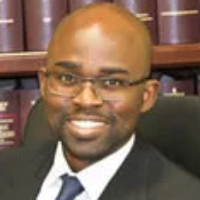Big Pool Criminal Lawyer, Maryland
Sponsored Law Firm
-
 x
x

Click For More Info:
-
Cromwell & Associates, LLC
7305 Baltimore Ave Suite 307 College Park, MD 20740» view mapEstate, Tax, and Real Estate Law Where Every Client Matters
At Cromwell & Associates, our firm is large enough to handle your diverse needs, but small enough to give you the personal attention you deserve.
240-667-7234
Ayodeji Oyekunle Badaki
✓ VERIFIEDDivorce & Family Law, Accident & Injury, Criminal, Bankruptcy & Debt
Ayodeji Badaki holds a J.D. from the University of Baltimore School of Law as well as an LL.M. from the Georgetown University Law Center where he was ... (more)
Alison Christine Peteranecz
Divorce & Family Law, Criminal, Family Law
Status: In Good Standing Licensed: 15 Years
Andrea Marissa Francine Chee-a-tow
Family Law, Divorce & Family Law, Criminal, Business
Status: In Good Standing Licensed: 18 Years
Andrea Marissa Francine Chee-A-Tow
Traffic, Divorce & Family Law, Criminal, Business
Status: In Good Standing Licensed: 18 Years
B. Andrew Bright
State Government, Family Law, Criminal, Bankruptcy & Debt
Status: In Good Standing Licensed: 32 Years
Benjamin Andrew Bright
Divorce & Family Law, Criminal, Bankruptcy & Debt, Family Law
Status: In Good Standing Licensed: 33 Years
 Stephen Cromwell College Park, MD
Stephen Cromwell College Park, MD AboutCromwell & Associates, LLC
AboutCromwell & Associates, LLC

